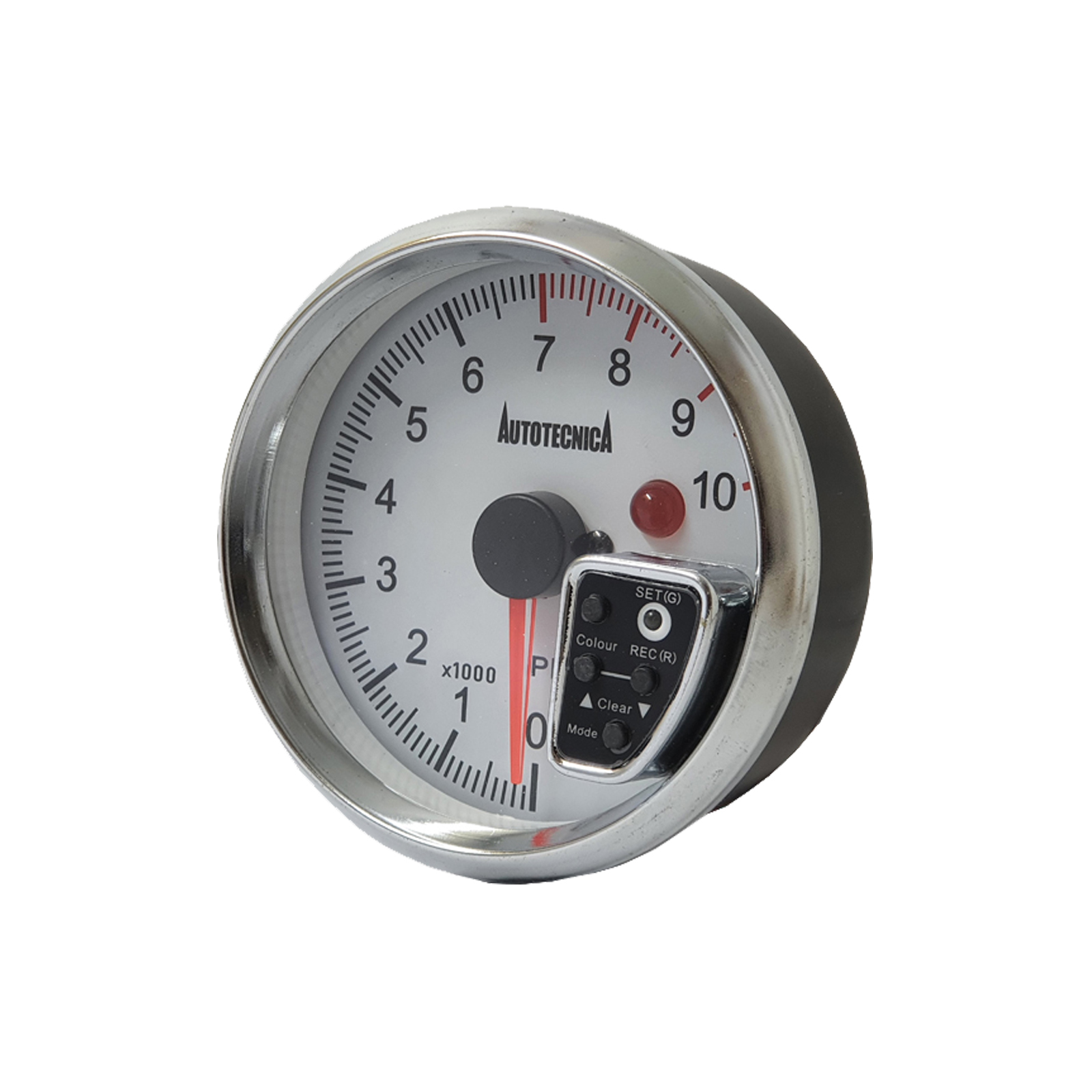Tachometer Fundamentals: Whatever You Need to Know for Accurate Readings
Tachometer Fundamentals: Whatever You Need to Know for Accurate Readings
Blog Article
Key Reasons Having a Tachometer Is Important for Preserving Engine Wellness and Efficiency
This modest yet crucial tool plays a crucial duty in the maintenance of an engine's health and efficiency. By giving real-time information on engine speed and RPM degrees, a tachometer supplies very useful understandings that straight affect the efficiency and durability of the engine. Let's explore the vital factors behind its essential function in maintaining engine health and performance.
Protecting Against Engine Over-Revving

To guard the engine from possible damage, it is vital to execute measures that protect against over-revving, a method that can result in costly fixings and minimized engine lifespan. Over-revving takes place when the engine's rotational speed surpasses the optimum limit established by the maker, causing undue stress and anxiety on interior components such as pistons, shutoffs, and connecting poles. This extreme pressure can lead to mechanical failings, including curved valves, harmed pistons, and even tragic engine failure.
A rev limiter is a tool that controls the maximum RPM (transformations per min) of the engine by either reducing off gas circulation or spark to the engine when the pre-set limit is reached. Routine upkeep checks to make sure the engine is in optimum problem can also aid in avoiding over-revving occurrences and extending the engine's life-span.
Maximizing Gas Intake
Reliable gas consumption plays an essential role in making best use of the efficiency and sustainability of an engine. tachometer. Maximizing gas intake not just aids in lowering functional prices but also minimizes the environmental impact of car discharges. By utilizing a tachometer to keep track of engine speed and adjust driving habits accordingly, drivers can attain far better gas effectiveness
Preserving a stable pace and avoiding sudden accelerations and slowdowns can dramatically boost gas economic climate. Furthermore, proper equipment choice based on the tachometer analyses makes certain that the engine runs within its ideal array, bring about more reliable gas combustion.
Frequently keeping track of the tachometer can also aid determine any inadequacies or mechanical problems that might be impacting fuel intake. An abrupt boost in gas usage without an equivalent modification in driving behaviors might show an issue that needs focus.
Monitoring Engine Health And Wellness
Checking engine wellness is important for making sure optimum efficiency and long life of the vehicle. By utilizing a tachometer to keep track of engine speed, motorists can find abnormalities that might show possible concerns with the engine. A tachometer gives real-time information on engine changes per min (RPM), permitting vehicle drivers to identify any kind of uncommon spikes or decrease in RPM that can signify troubles such as misfires, damaged parts, or engine getting too hot.

Frequently keeping an eye on engine health and wellness through the use of a tachometer makes it possible for vehicle drivers to attend to problems quickly before they rise and trigger considerable damage. For instance, identifying a reduction in RPM might indicate gas shipment problems or a clogged up air filter, while an unexpected boost in RPM might indicate issues with the transmission or exhaust system. By staying cautious and responsive to browse around this web-site changes in engine efficiency, chauffeurs can protect against expensive repairs and make sure the overall wellness and effectiveness of their lorry.
Expanding Engine Lifespan
Making certain the longevity of an engine calls for persistent upkeep practices and conscientious monitoring of vital performance signs. Expanding an engine's life expectancy is critical for decreasing total car upkeep prices and preventing unanticipated malfunctions. A tachometer plays a substantial role in this element by giving real-time data on engine speed, enabling vehicle drivers and mechanics to make educated choices to avoid excessive deterioration.

Moreover, regular maintenance based upon tachometer analyses, such as prompt oil modifications and ignition system replacements, can considerably add to extending the engine's longevity. Overall, including a tachometer right into regular engine tracking practices is important for preserving the engine's wellness and performance over the long-term.
Saving Money on Services
A tachometer helps in keeping track of the engine's RPM (changes per minute), allowing vehicle drivers to operate within the suggested array. By staying within these ideal RPM degrees, too much strain on the engine can be prevented, lowering the likelihood of expensive fixings due to overworking the engine.
Additionally, by utilizing the information from a tachometer to practice smooth acceleration and deceleration, motorists can lengthen the lifespan of their car's elements, more inevitably conserving money on maintenance and replacements. Generally, the understandings given by a tachometer encourage drivers to make informed decisions that can avoid unneeded deterioration on the engine, bring about substantial price savings in the future.
Conclusion
Finally, a tachometer plays an important function in preserving engine health and wellness and performance by protecting against over-revving, maximizing gas intake, checking engine wellness, extending engine lifespan, and conserving cash on repair services. It is a crucial device for making sure that the engine runs within risk-free limitations and carries out at its best, ultimately adding to the long life and general performance of the car.
Report this page